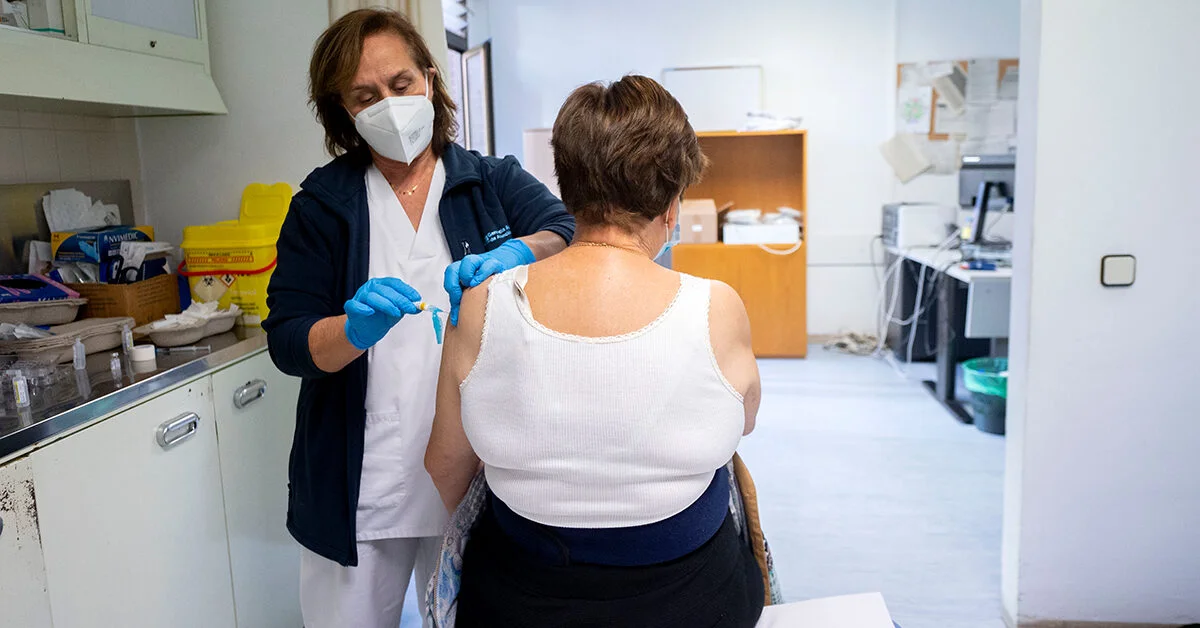London (Parliament Politic Magazine) – Scientists in Japan have developed a groundbreaking vaccine that has the potential to significantly reduce or even prevent the devastating effects of Alzheimer’s disease. This revolutionary jab specifically targets a protein that plays a crucial role in the most prevalent form of dementia. Rigorous testing on mice has demonstrated its remarkable ability to eliminate toxic cells associated with the condition.
Remarkably, the SGP vaccination led to a substantial reduction in amyloid plaques and a decrease in brain tissue inflammation among the mice. Furthermore, these remarkable creatures exhibited noticeable improvements in behavior and heightened awareness.
Researchers Unveil Groundbreaking Vaccine to Mitigate Alzheimer’s Symptoms
Researchers hope that the vaccine targets inflamed brain cells associated with Alzheimer’s, the most common disease causing dementia. This breakthrough could potentially offer hope in treating dementia, a condition estimated to affect over 800,000 people in the UK. The new vaccine has been developed by researchers at Juntendo University Graduate School of Medicine in Japan and is currently awaiting human trials, as reported by WalesOnline.
Dr. Chieh-Lun Hsiao, the study’s lead author, stated, “Alzheimer’s disease now accounts for 50% to 70% of dementia patients worldwide. Our study’s novel vaccine test in mice points to a potential way to prevent or modify the disease.
“The future challenge will be to achieve similar results in humans. If the vaccine could prove to be successful in humans, it would be a big step forward towards delaying disease progression or even prevention of this disease.”
Researchers have developed an Alzheimer’s disease mouse model that closely resembles the human brain and effectively replicates the pathology of Alzheimer’s disease induced by amyloid-beta. Typically, individuals in the advanced stages of Alzheimer’s exhibit reduced anxiety, leading to a diminished awareness of their surroundings.
Various studies conducted in the UK, France, and Scandinavia have indicated a higher likelihood of developing Alzheimer’s disease among individuals previously infected with herpes.
Scientists Declare New Vaccine Shows Potential in Minimizing Alzheimer’s Impact
Dr. Hsiao stated that the mice who received the vaccine exhibited signs of anxiety, indicating heightened caution and awareness of their surroundings. This observation suggests a reduction in the progression of the disease. Additionally, the vaccine led to a decrease in several inflammatory biomarkers associated with Alzheimer’s disease.
Furthermore, a behavioral test conducted on the mice at six months of age demonstrated that those who received the SAGP vaccine displayed significantly improved responses to their environment compared to those who received a placebo vaccine.
The mice vaccinated with SAGP exhibited behavior similar to that of normal, healthy mice and displayed heightened awareness of their surroundings. The SAGP protein was found to be in close proximity to specialized brain cells known as microglia, which are involved in the immune defense of the central nervous system.
Dr. Hsiao elaborated on the role of microglia, explaining that they aid in the removal of harmful protein plaques, while also potentially causing brain inflammation that can harm neurons and exacerbate cognitive decline in individuals.
Professor Ruth Itzhaki, a leading researcher at Oxford University’s Institute of Population Ageing, has made significant contributions to advancing the HSV-1 theory of Alzheimer’s.
Read More: International Doctors ‘Essential’ for UK’s Health Care System
Research Team Asserts New Vaccine Can Mitigate Debilitating Effects of Alzheimer’s
In Alzheimer’s disease, there is a buildup of brain proteins known as amyloid beta peptides. These peptides tend to aggregate and form plaques, which accumulate between neurons and interfere with their proper functioning.
According to Doctor Hsiao: “Earlier studies using different vaccines to treat Alzheimer’s disease in mouse models have been successful in reducing amyloid plaque deposits and inflammatory factors’’.
The research team has indicated that previous studies have suggested a significant increase in the SAGP protein within microglia. This finding highlights the crucial role of these cells as a potential target in Alzheimer’s disease.
Doctor Hsiao further revealed: “By removing microglia that are in the activation state, the inflammation in the brain may also be controlled. A vaccine could target activated microglia and remove these toxic cells, ultimately repairing the deficits in behavior suffered in Alzheimer’s disease.”
The results of the initial research were showcased at the Basic Cardiovascular Sciences Scientific Sessions, organized by the American Heart Association, held in Boston, Massachusetts, USA. Evidence specifically pointed towards herpes simplex virus 1 (HSV-1) as a significant suspect. HSV-1 is a pathogen that can be found in 70% of the UK population and is known to cause oral herpes.


